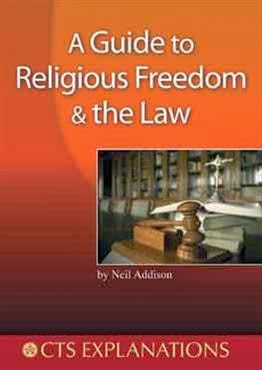The US Supreme Court has issued an extremely important judgment in the case of Hosanna-Tabor Evangelical Lutheran Church vEqual Employment Opportunity Commission which dealt with the so called "Ministerial Exception" in the application of US Anti-Discrimination Employment legislation. It was unusual for the US Supreme, or indeed most supreme courts, in that it was a completely unanimous decision without even the smallest disent.
In simple terms the "Ministerial exception" is an application of the Ist Amendment to the US Constitution which prohibits the establishment of religion in the US or any prohibition in the free exercise of religion. The Courts have interpreted this to mean that US law and Government including Anti-discrimination law cannot be used to force Religious Organisations to act in a way that is contrary to their beliefs or to employ someone contrary to their beliefs. In this respect the US Courts have shown a greater awareness of the reality of the of quoted separation of Church and State. In Europe this is often interpreted simply as a one way process so that Churches should not be allowed to interfere in Government but in the US it is recognised that separation is a two way process and Government cannot interfere in religion.
The case itself was brought by a teacher at a Michigan school run by a Lutheran church when she was given a diagnosis of narcolepsy. She was however also classed as a "Minister" by the Lutheran Church. The Church said that she was sacked because she had threatened to go to Court with an allegation of Disability Discrimination. The beliefs of the Church was that disputes between members of the Church should be settled internally and not through outside litigation. The Supreme Court held that the Church was entitled to this belief and to enforce it internally.
The case may well be quoted in British cases involving religious freedom. Though I suspect that British Courts may be inclined to say that it is only relevant to the US and the 1st Amendment to the US Constitution the unequivocal nature of the decision may give it some moral if not precisely legal authority.
The main judgment was given by Chief Justice Roberts there were two additional concurring decisions one of which by Justice Alito with Justice Kagan concurring is worth quoting
"Throughout our Nation’s history, religious bodies have been the preeminent example of private associations that have “act[ed] as critical buffers between the individual and the power of the State.” Roberts v. United States Jaycees, 468 U. S. 609, 619 (1984). In a case like the one now before us—where the goal of the civil law in question, the elimination of discrimination against persons with disabilities, is so worthy—it is easy to forget that the autonomy of religious groups, both here in the United States and abroad, has often served as a shield against oppressive civil laws. To safeguard this crucial autonomy, we have long recognized that the Religion Clauses protect a private sphere within which religious bodies are free to govern themselves in accordance with their own belief".
Subscribe to:
Post Comments (Atom)



No comments:
Post a Comment